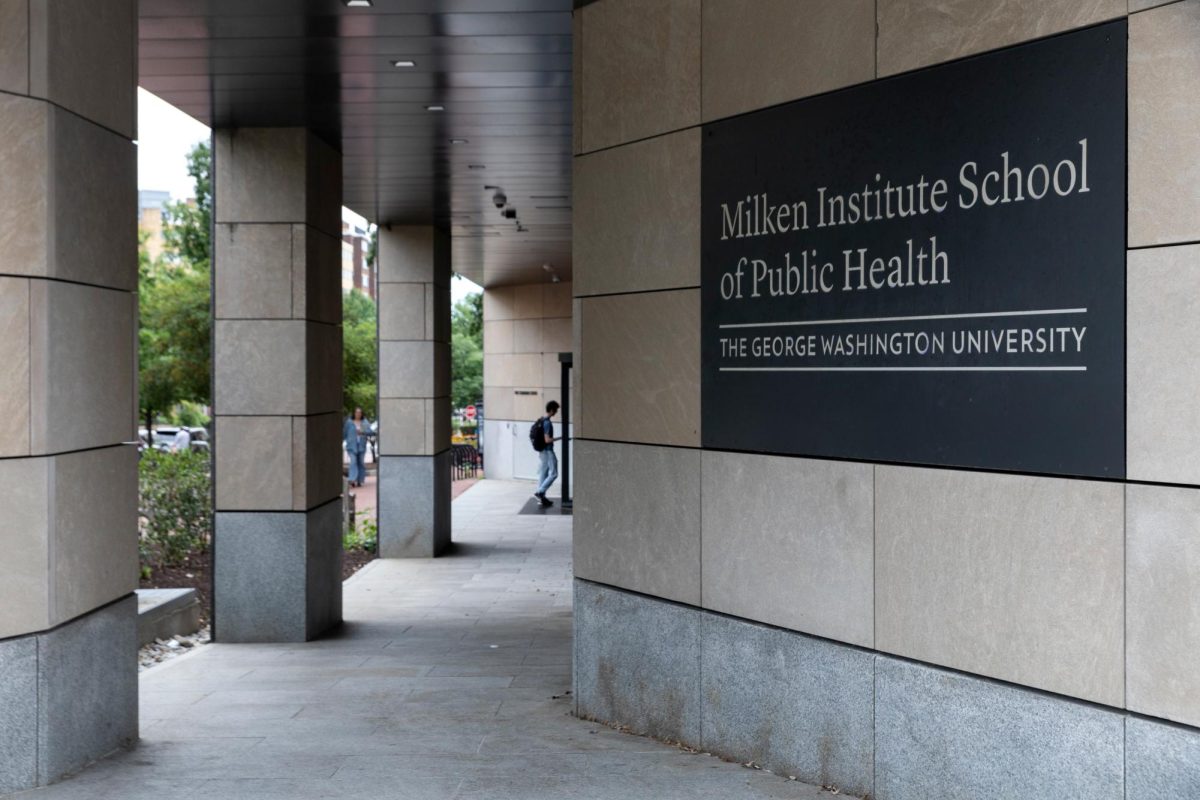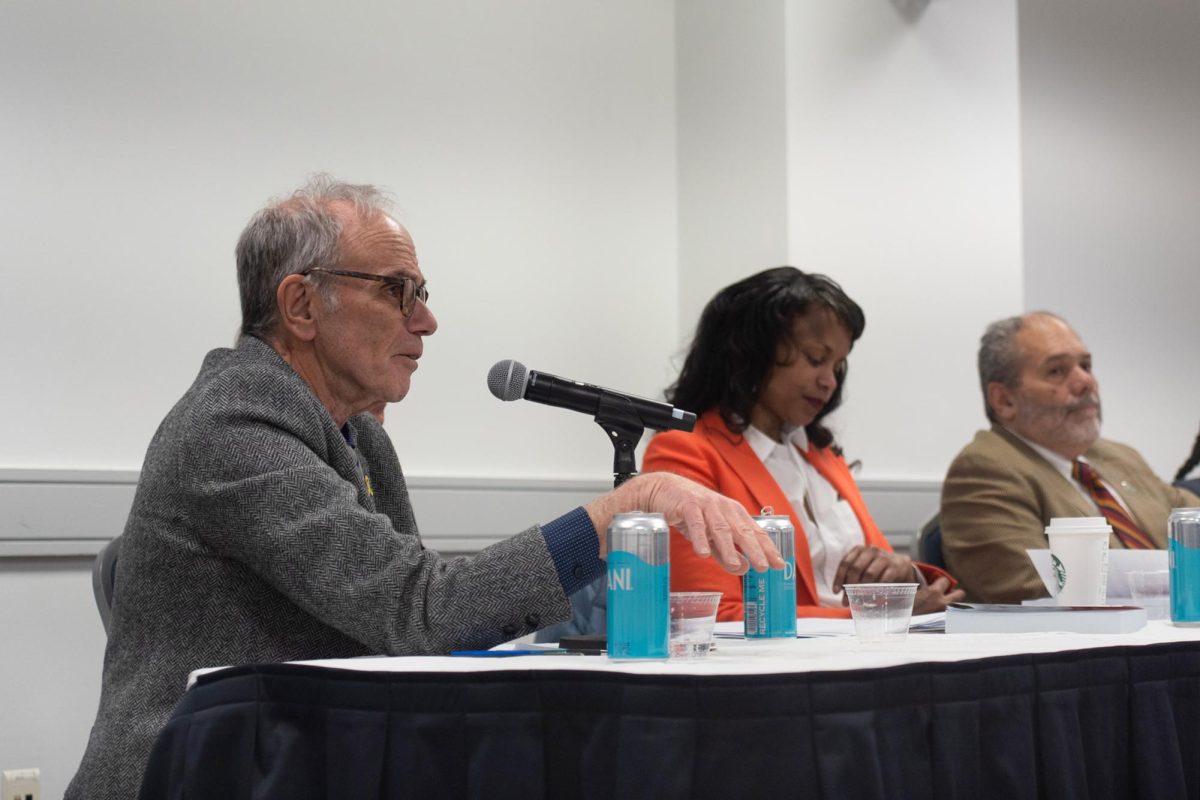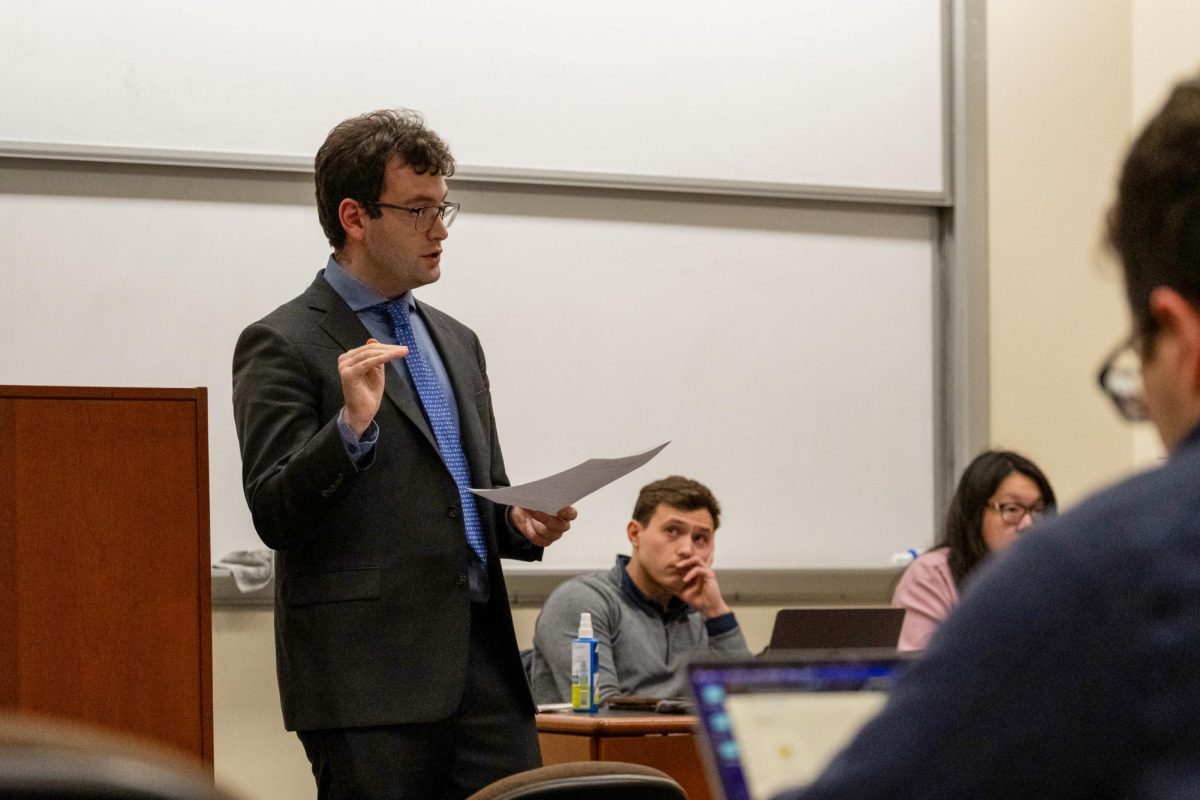LGBTQ+ healthcare advocates spoke about health equity policies and their organization during a virtual lecture Monday.
The final lecture of the 2022 Fall Colloquium series of the GW LGBT Health Policy & Practice Graduate Certificate Program was presented by program alumnus Nicholas Grant, president of the GLMA: Health Professionals Advancing LGBTQ+ Equality. Grant spoke alongside GLMA Executive Director Alex Sheldon, and the two focused on GLMA’s efforts to improve LGBTQ+ equity within the healthcare field and the promotion of policies protecting LGBTQ+ patients.
GLMA, founded in 1981, is the largest association of lesbian, gay, bisexual, transgender and queer healthcare providers in the world. Grant said the organization’s mission is to ensure equality for LGBTQ+ healthcare professionals and individuals and to be a leader in public policy advocacy related to LGBTQ+ health.
“The majority of the work that GLMA engages in is advocacy and the strength of GLMA comes from our multidisciplinary membership and expertise that membership brings to our work,” Grant said.
With a membership of about a thousand healthcare professionals and students, GLMA’s committees focus on specific issues and make policy recommendations to healthcare organizations and lawmakers. Grant referenced these committees, including the Lesbian Health Fund Advisory Committee, which raises funds to provide grants for research focused on the health of queer women.
Sheldon said one of the policy priorities of GLMA is ensuring access to gender-affirming care.
“Most legislators and the folks that are anti-LGBTQ right now are zooming in on our youth and they’re doing so because they want to zoom in and really focus and target on our most vulnerable populations,” Sheldon said. “The bans on best-practice medical care represent the most extreme and coordinated attacks on trans life.”
Sheldon said the organization is working to support gender-affirming care providers who have been attacked and threatened online for their work. They said education policy is a priority for GLMA and the exclusion of transgender people from some educational spaces results in mental and physical health issues.
“Those things actually have health outcomes that are negative and deleterious,” Sheldon said. “Not only would they be less likely to be working with folks to actually access the care that they need, but actually not going to the bathroom when you need to has resulted in long-term issues with urinary tracts and other issues that can stem from stomachs and intestines from not having your actual access to something that is a multi-daily need of everyone.”









